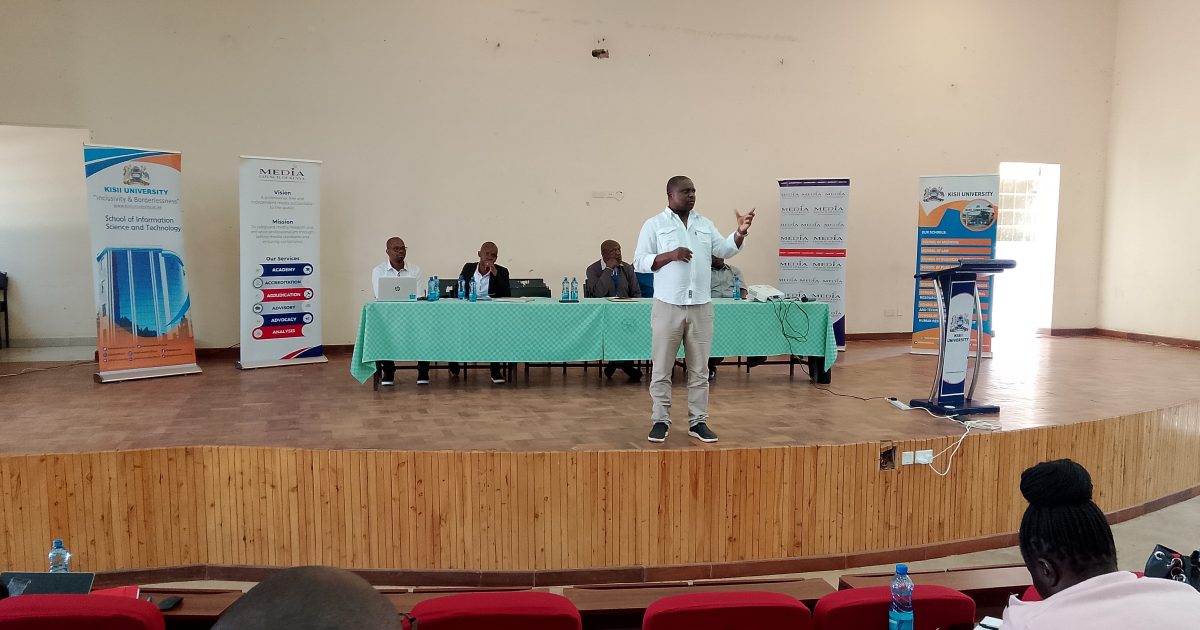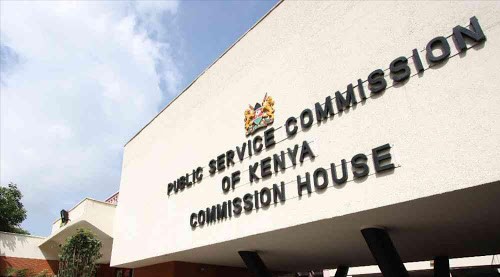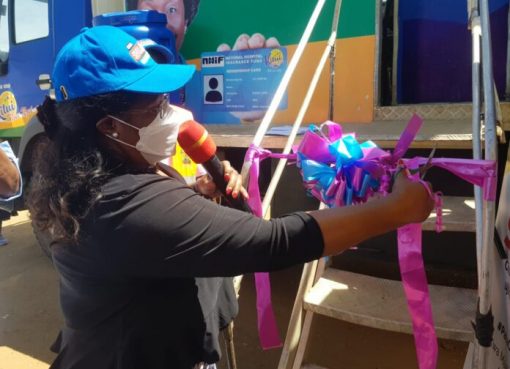The Media Council of Kenya (MCK) has conducted training for journalists and public communications officers drawn from Kisii County, on how to access information and financial knowledge.
Speaking during the forum held at Kisii University, MCK’s Director of Media Training and Development Victor Bwire highlighted key challenges facing journalists and media practitioners in their daily work.
Bwire cited challenges such as copyright infringement, content theft, defamation and misinformation as major obstacles in the profession.
He encouraged the journalists to learn more about the legal frameworks that protect them, adding that scribes can explore the legal channels to request for information in cases where such is denied.
“When requesting for information, you have to be clear and elaborate on the specific information that you require from an authority,” noted the Director.
However, Bwire pointed out that the Constitution of Kenya has various limitations to access of information, especially if it involves personal data, privacy matters, hate speech, or irrelevant materials.
He also warned scribes against spreading unverified information, urging them to instead conduct thorough research before publishing any content.
Further, the Director encouraged the scribes to have a proactive network of reliable sources and a clear understanding of their story’s purpose and audience.
Speaking at the same event, MCK’s Senior Officer for Research, Planning, and Strategy Jacob Nyongesa addressed the rising challenges in digital journalism.
Nyongesa told the media practitioners to leverage on artificial intelligence (AI) as it offers promising solutions for journalism, but cautioned them against using it to amplify false narratives.
“The rapid spread of misleading content has contributed to the erosion of public trust in legitimate news sources,” he noted.
As a result, the official urged the scribes to verify information received before disseminating to the public because that is the information that they will rely on.
Nyongesa urged journalists to engage in fact-checking as a core practice for credible journalism using digital tools for verification including reverse image search, video verification software, geolocation technologies and social media analysis tools.
“Kenya was ranked third among countries that spend a lot of time on internet browsing, and as journalists, this calls for accuracy and integrity in information shared online,” he stated.
On his part, MCK’s Kisumu Regional Coordinator Teddy Evans encouraged the media practitioners to embrace budgeting, saving and investing.
“It is important to think on how you should cut the expenditures on a personal level and decide on the things that can really save you when emergencies arise,” noted Evans.
The Regional Coordinator also urged the scribes to acquire medical insurance saying that it is vital during hospital emergencies.
“You should register and start paying for medical insurance covers like Social Health Authority (SHA) because it can help you settle your medical bills, when you do not really expect it,” he added.
The training ended with a call for journalists to be diligent, embrace ethical standards and ensure they are factual in their reporting in order to preserve the integrity of the media.
By Faith Mutua and Dancan Wesonga





